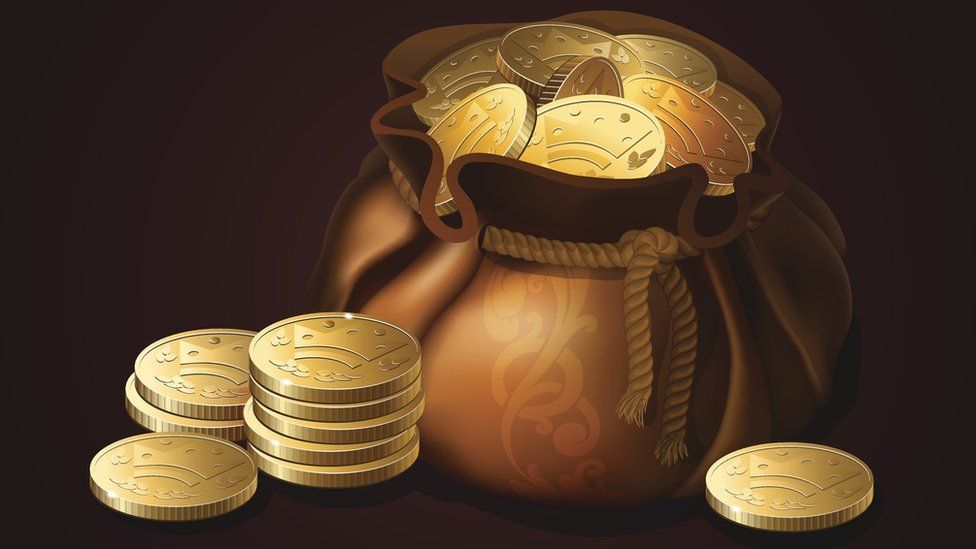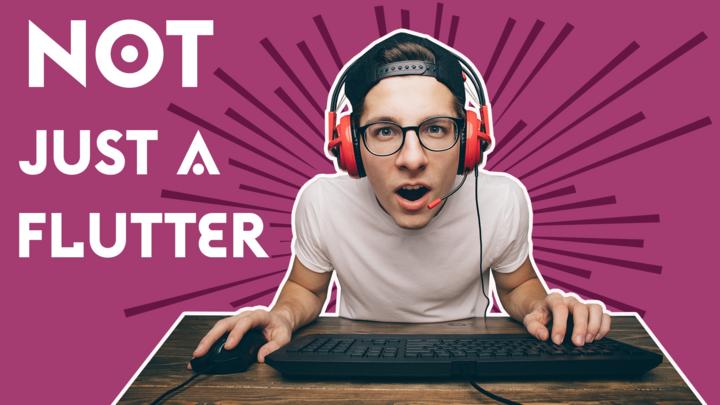Bbc Newsround Gambling
Posted By admin On 13/04/22Parents and guardians now have a new way to save for their kids and feel good with the launch of The Big Exchange sustainable Junior stocks and shares Isa.
The Big Exchange says its new Isa only invests in funds that are proven to be making a positive impact on either the environment or society.
Could this be a worthwhile financial Christmas gift for your children? Here, Which? looks into what the new investment account offers and how it stacks up against other ethical stocks and shares Isas on the market.
What does the Big Exchange Junior Isa offer?
Newsround asks video game streamer Vikkstar123 how he deals with online bullying whilst playing online. Could online gaming turn into gambling? The BBC is not responsible for the content. Search the BBC Search the BBC. Genome BETA Radio Times 1923 - 2009. Show TV Channels Hide TV Channels TV; Show Radio Channels.
The Big Exchange launched in October 2020. It’s co-founded by social enterprise The Big Issue and a host of industry partners such as Civitas, Liontrust and Aberdeen Standard Investments.
It offers several types of investments, all of which aim to give people a way of making a positive social and environmental impact with their money without having to sacrifice on their returns.
The Junior Isa is a stocks and shares account, which means the money you deposit is invested. This means there is an element of risk involved, and you’re not guaranteed to get out as much money as you put in, but equally, any growth will be tax-free as it’s all held within an Isa wrapper.
One of the pros of the account is that you have the option to choose funds that support the impact area of your choice, which are also graded depending on how impactful they are.
If you don’t want to pick your own funds, there are bundles available (more on these below).

- Find out more:what is a stocks and shares Isa?
How can you invest?
The account must be opened online by the parent or guardian of a child who is under the age of 18.
You can either choose your own investment funds or pick from a ready-made bundle. Each of the funds is graded with a gold, silver or bronze medal to indicate how much positive impact they make.
If you go for one of the bundles, there’s the usual ‘cautious’, ‘balanced ‘or ‘adventurous’ options depending on your appetite for risk. You can see how many gold, silver or bronze funds sit within each bundle.
If you’re picking your own funds, you can scroll through the full fund list and add each one to a virtual shopping basket.
Note that you’ll have to commit to saving a minimum of £25 each month – or £300 a year. It’s also possible to make additional one-off lump sum payments from £100, as long as you don’t exceed the annual Junior Isa limit which is £9,000 for 2020-21.
- Find out more:Junior Isa rules and allowances
What are the fees?
The Big Exchange has a low annual service and admin fee of 0.25%, and there are additional manager fees for each fund you invest with that tend to range between 0.8% and 1.8% per year.
According to its fee calculator, if you were to invest £1,000 you’d pay fees of around £1.21 per month. This includes the annual fee and the average investment charge.
These charges are the same across all investments with the Big Exchange.
Fees matter, as they apply whether or not your investments perform well. The graph below shows how fees can eat into a £1,000 investment when performance is poor, neutral or good.
- Find out more:compare investment platform fees and charges
What other ethical Junior Isas are available?
While there are more than 2,500 ethical funds on the market, not including ethical blended funds, investment trusts, financial advisors and robo-advisers, there are relatively few options for ethical Junior Isas.
What is considered ‘ethical’ can vary, but you’d generally expect a fund derived from the following trades and industries won’t be included:
- tobacco
- alcohol
- pornography
- gambling
- fur trade
- armaments

Much like The Big Exchange bundles, some investment platforms offer ethical Junior Isas with ready-picked funds:
- Wealthify Junior stocks and shares Junior Isa: Wealthify is an app-based investment platform, where you can choose between five investment styles depending on your attitude to risk and whether you want to go for ethical funds. The investments are chosen for you, with investments starting from £1. Fees are 0.6%, plus an additional fee of around 0.22% charged by the underlying funds.
- Nutmeg Junior stocks and shares Junior Isa: Nutmeg is another app-based investment platform. You can choose between several portfolio options, one of which is ‘socially responsible’. The funds in here are tilted towards companies and bond issuers with high environmental, social and governance (ESG) standards. Nutmeg’s fees are 0.75%, plus 0.31% average investment cost and 0.07% average market spread.
Find out more:how investment platforms work
Do parents and kids care about ethical investing?
Ethical investments for kids are scarce but there does appear to be a demand for it.
When Which? asked 2,002 UK adults back in May what their top concerns were when it comes to investing, 27% said climate change and the environment, while 21% said workers’ rights.
And this doesn’t stop at adults, these issues are even more pertinent among young people. According to a poll by BBC Newsround this year of 2,000 eight to 16-year-olds, found four in five respondents identified climate change as an important issue.
How to be more ethical with your money
Bbc Newsround Gambling News

Which? Money research into ethical investments conducted earlier this year found that jargon and unreliable data is often making it too difficult to find investments that relate to your values.
From confusing industry labels – such as ‘light green’ and ‘dark green’ investing, or ‘impact’ vs ‘sustainable’ investing – to ‘greenwashing’, where funds’ have been made to seem more ethical than they really are, going green can seem a bit of a minefield.
As such, there are a few things you should consider before investing:

- Are the funds acceptable to your values? What is considered ‘green’ or ‘ethical’ is still subjective. For instance, some people may be comfortable with a fund that invests in a large energy company that makes efforts to be sustainable, while others will not want to put any money into these kinds of companies. Equally, if you feel strongly that you’d like your money to go towards a particular cause, make sure the companies you invest in are doing that.
- Can you afford the minimum investment? If you’re being pickier about what funds to invest in, be aware that may come with a requirement to invest more money, so make sure it suits your budget.
- Can you afford the amount of risk? On a similar point, as with any investment, you should make sure you’re prepared for the fact that you could lose money if the investments don’t grow. If this happens, you won’t be eligible for any FSCS compensation, unless you were mis-sold or given incorrect financial advice.
Find out more:is ethical investing just too difficult?
What role can technology play in helping to fight coronavirus? I’ve been keeping a close eye on the potential for smartphones to help contact tracing programmes become faster and more accurate.
While some national health authorities have raced to deploy contact tracing apps for their citizens’ smartphones, here in the UK it’s been a bumpy ride – as I wrote earlier in the summer.
Reporting for BBC Newsround, I gave an update on what happened to the NHS COVID-19 app in England, as well as how other home nations chose to move with their own apps.
Bbc Newsround Gambling Advice
Since this report, Apple and Google have pushed ahead with plans to integrate contact tracing right into their smartphones. Exposure Notifications Express means that a dedicated app may no longer be necessary to enable contact tracing.